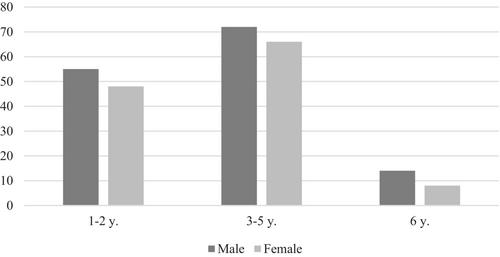The relationship between parental anxiety, fear of Covid-19, partner involvement in children's care and sleep quality during the Covid-19 pandemic in Italy
Abstract
During the Covid-19 pandemic new stressors were added to the usual challenges parents face, changing habits and reduced physical activity, all factors that negatively affect sleep quality in adults and children. This study examines (1) possible changes in the sleep-wake patterns of parents and children before and after the March–May 2020 lockdown and during the new restrictions imposed by the Italian government in March 2021; (2) possible associations between children and parents' sleep quality reported by parents and intrinsic and extrinsic factors. A total of 264 Italian parents with children aged 1–6 years (M = 40 months, SD = 18.18) completed self-report questionnaires. Children's sleep habits changed, and parental insomnia symptoms worsened after the March–May 2020 lockdown, while children's insomnia symptoms decreased. Positive associations between children's negative affectivity and insomnia symptoms emerged, as well as between generalized parental anxiety and parental insomnia symptoms and between parental fear of Covid-19 and sleep-related habits not in line with paediatric recommendations. Partner's involvement in children's care promoted good sleep habits. Results identified risks and protective factors that could impact Italian parents' and children's sleep during the second wave of the Covid-19 pandemic, raising awareness among families, education practitioners, healthcare providers and the general public.
Highlights
- Italian children's sleep habits changed, and parental insomnia symptoms worsened after the March–May 2020 lockdown, while children's insomnia symptoms decreased.
- During the second wave of the Covid-19 pandemic, higher levels of children's temperamental negative affectivity were associated with higher levels of parental and children's insomnia, higher levels of parental anxiety, and the presence of children's sleep-related habits not in line with pediatric recommendations.
- Partner's involvement in children's care promoted good and healthy children's sleep habits.


 求助内容:
求助内容: 应助结果提醒方式:
应助结果提醒方式:


